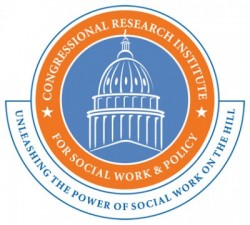The Alabama chapter of the National Association of Social Workers (NASW) held its Annual State Conference last week with the theme: Answering the Call for Cause and Community. Social workers in Alabama, like many others, are beginning to understand that change will only come through organized concerted efforts that involve as many community residents as possible around issues of critical concern. Change is needed in Alabama. I found people in Montgomery to be exceptionally warm and friendly. Yet below the surface Alabama has serious problems. According to factors in the 2014 study by the Organization for Economic Co-operation and Development (OECD), Alabama has the second-worst quality of life among the 50 states, trailing only neighboring Mississippi.
According to U.S. Census Bureau statistics, Alabama ranks 47th in the nation in median annual household income at $42,278 more than $11,000 less than the national average of $53,674. Median annual income for black Alabamians is a paltry $29,210. Alabama leads the nation in the incidence of diagnosed diabetes and is fifth in prevalence of obesity. It is ranked next to last in life expectancy in the U.S.—tied with West Virginia at 75.4 years. Its prison system is a mess, operating at 189 percent of capacity. But don’t expect much to be done about these problems anytime soon because Alabama has one of the nation’s most regressive systems of taxation.
Led by their indomitable Executive Director Dawn Ellis-Murray, members of NASW-Alabama gathered in Montgomery with their sights on addressing critical issues of the death penalty, incarceration, voting rights expansion, payday lending, and adolescent tobacco use. These were the issues for their advocacy day that began Wednesday with a rally on the steps of the Alabama State House in near-freezing weather. Among these issues, voting rights has always been at the center of the struggle for black and poor Alabamians. Most recently, Alabama’s Law Enforcement Agency (ALEA) announced the closing of 31 motor vehicle offices in mostly rural counties soon after state laws requiring state voter identification took effect—disproportionately impacting black and poor voters.
When Congresswoman Terri Sewell—the lone Democrat and person of color among the Alabama congressional delegation—threatened to take their grievances to the Justice Department, Governor Robert Bentley, denying any racial motivation, relented and reopened the offices for one day out of each month. The Alabama legislature had passed a law in 2011 requiring state issued identification for voting that was to take effect during the 2014 primaries. Challenges to that law were put on hold until the Supreme Court ruled on Shelby County v. Holder, an objection to the pre-clearance formula in the 1965 Voting Rights Act. The Supreme Court ruled on June 25, 2013 that Section 4b of the VRA was unconstitutional because it was operating on a 40 year old formula. By striking down Section 4b, the Supreme Court all but nullified Section 5 of the VRA which required pre-clearance before states with histories of voting rights suppression could make changes to existing election regulations.
Alabama’s social workers are refusing to sit on the sidelines of this struggle. They know change will never come soon enough if they are not willing to jump into the fray. Executive Director Dawn Ellis-Murray believes social change is a mandate for all social workers—faculty, administrators, practitioners and students. She has a plan that will connect NASW-Alabama with all 17 social work schools and departments across the state.
In recent decades, much of social work’s emphasis has been on bolstering its professional standing through rigorous accreditation standards, licensing, and evidence-based practice. Less attention has been given to the macro dimensions of social work that were more prevalent during the struggle for civil rights and women’s equality. That seems to be changing as greater attention and resources are being devoted to policy education and practice. The Council on Social Work Education (CSWE) recently organized a social work policy education coalition that is working on infusing more policy knowledge and skills into social work curricula. CRISP will continue its push for more social work involvement in politics in partnership with Influencing Social Policy (ISP) and the Nancy A. Humphreys Institute for Political Social Work. We are set to launch a social work voter empowerment campaign in March.
Voting is Social Work is the theme of this year’s Social Work Day on the Hill activities. With the untimely death of Supreme Court Justice Antonin Scalia, Americans are waking up to the reality that voting matters. The potentially tortuous process of nominating and confirming Scalia’s successor will crystalize the importance of going to the polls and having your voice heard.
The post NASW-Alabama Striving for Social Justice appeared first on Congressional Research Institute for Social Work and Policy.
Written By Charles E. Lewis Jr., Ph.D
NASW-Alabama Striving for Social Justice was originally published @ Charles Lewis – Congressional Research Institute for Social Work and Policy and has been syndicated with permission.
Our authors want to hear from you! Click to leave a comment
Related Posts







